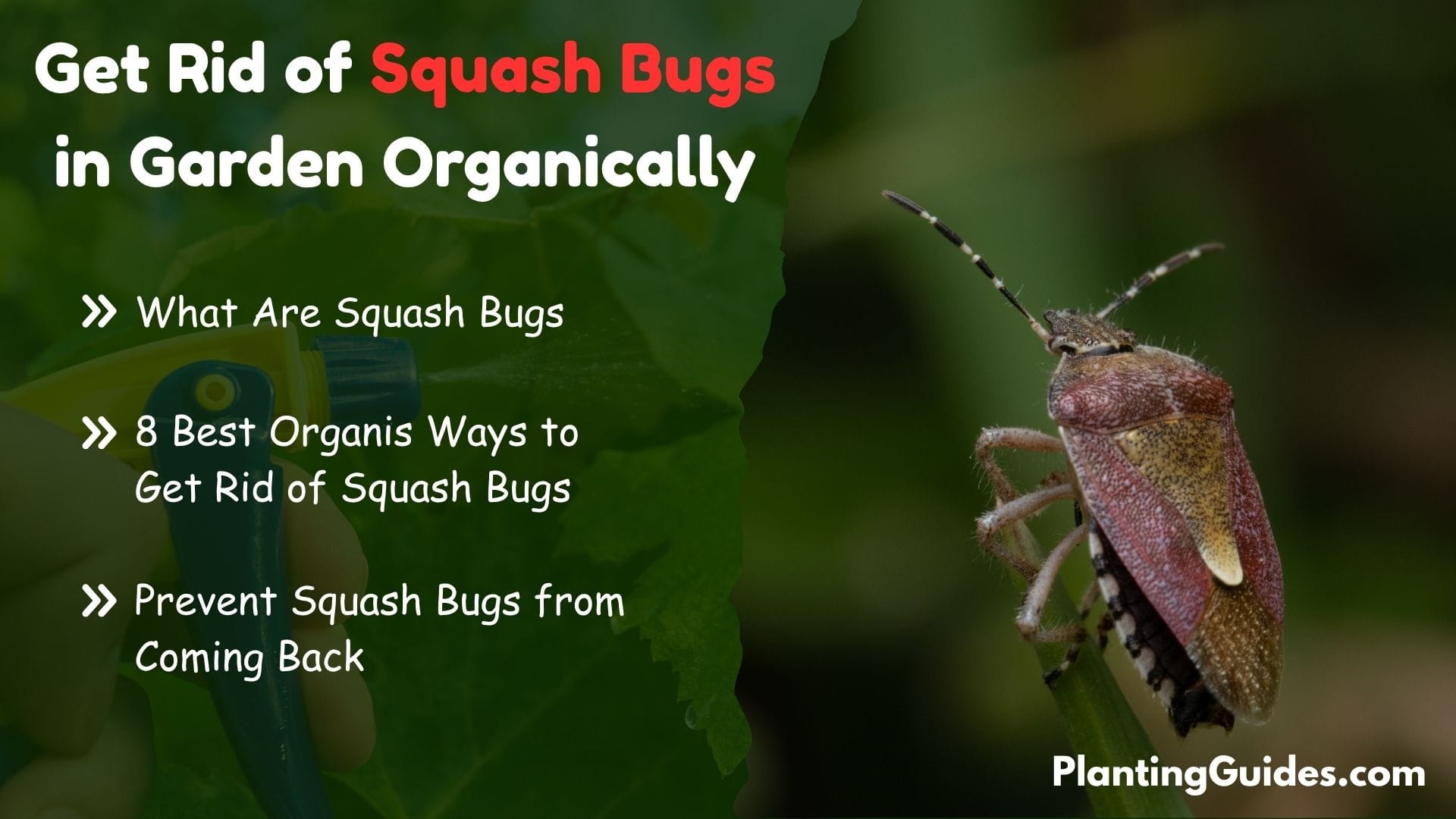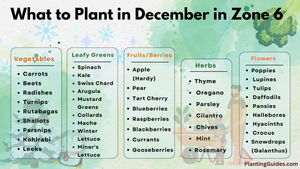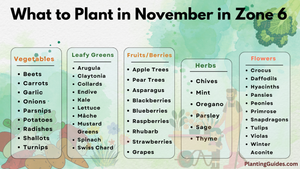
I have struggled with squash bugs for a while, especially when growing zucchini and pumpkins. These little pests were killing my plants, and I didn't want to use chemical sprays to repel them. So, I tried multiple organic methods over the past two seasons, and here I will share what actually worked for me.
This article is not just a bunch of tips; it's a collection of things I have personally tried in my own garden. If you don't want to use chemicals and are looking for simple, organic ways to fight squash bugs and win, you are in the right place.
What Are Squash Bugs?
Squash bugs are flat, brown bugs that suck the juice from your squash, zucchini, pumpkins, and even cucumbers. They spread quickly and usually hide under the leaves or near the base of the plant.
Sometimes you won't see the bugs right away, but the plant will start looking weak or unhealthy. If your squash plants seem sick even though you're watering them properly, squash bugs might be the reason. I’ve faced this problem myself, so I know how frustrating it can be.
Now, in the table below, I have shared what I have noticed in my garden when squash bugs were around.
| Sign | What I Noticed |
|---|---|
| Wilted leaves | Leaves drooped even after I watered, that was my first clue |
| Yellow or brown spots | I saw weird patches that started small and spread fast |
| Copper-colored eggs | Found clusters under the leaves, they’re easy to miss if you don’t look closely |
| Bugs crawling | I actually spotted little gray nymphs and brown adult bugs walking on the plant stems and leaves |
I check my squash plants every couple of days, especially in warm weather. It’s way easier to deal with squash bugs before they take over the whole plant.
How I Got Rid of Squash Bugs Organically
Getting rid of squash bugs without using harmful chemicals took me time, patience, and a bit of trial and error. I learned that the key is to start early, check plants regularly, and combine a few organic methods instead of relying on just one.
Squash bugs spread fast, so waiting even a few days can make things worse. But with the right steps like handpicking, removing eggs, using neem oil, and keeping your garden clean, you can control them organically and still grow healthy, strong squash plants. Everything I shared here is what I actually tried and what worked for me.
I Removed the Bugs by Hand
This was the most effective method for me. By doing this regularly, I noticed a big drop in squash bug numbers within a week.
- Every morning (before 8 AM), I checked under the leaves.
- I picked off any adults or baby bugs (called nymphs).
- Dropped them in a bucket of soapy water. That kills them fast.
It’s a simple method, but if you keep doing it regularly, it really works.
Use gloves, these bugs can smell pretty bad.
I still do this whenever I get time because it helps stop the bugs from coming back and keeps my plants healthy in an organic way.
Removed Eggs with Tape
Squash bug eggs are small, shiny, and bronze-colored. They stick tightly to the underside of leaves.
- I used wide duct tape or packing tape or any sticky tape.
- Pressed it gently on the eggs, pulled the eggs off, and threw it away.
This method works great if you check and apply every 2–3 days.
Neem Oil Spray
Neem oil worked well as a gentle, organic insecticide. I mixed my own spray using the below ingredients.
| What I Used | How Much |
|---|---|
| Neem oil | 2 teaspoons |
| Water | 1 liter (4 cups) |
| Dish soap (mild) | A few drops |
I mixed it in a spray bottle and sprayed the top and bottom of the leaves, especially near the stem, where bugs hide.
Spray in the early morning or evening to prevent the sun from burning the leaves, as oils can cause damage under strong sunlight.
This spray helped me control the babies and stop eggs from hatching.
Companion Planting – Nature's Help
Some plants naturally keep squash bugs away. So, I planted flowers and herbs that bugs don’t like. And seriously, it really helped; I hardly saw any squash bugs after that.
| Companion Plant | How It Helps |
|---|---|
| Marigolds | Their scent keeps bugs away |
| Nasturtiums | Distract bugs, act as a trap crop |
| Radishes | Distract pests |
| Catnip | Bugs hate the smell |
| Mint | Works well, but can spread quickly, plant in pots |
These plants made the garden look colorful with their flowers, too.
Row Covers for Young Plants
I used lightweight garden fabric to cover young plants when they were small. This stopped bugs from laying eggs in the first place.
- This kept the bugs out until the plants got bigger.
- I removed the cover once flowers came in (so bees could pollinate).
Cover plants right after planting to protect them from bugs, and also, this method protects your plants from harsh weather.
Don't keep the plant covered after it flowers because bees need to get in for pollination.
This method helped me a lot during the early growing stage.
Clean Garden = Fewer Bugs
After harvesting, I used to leave old vines and leaves on the ground, a big mistake! Squash bugs hide and lay eggs there during winter.
Now I always,
- Pull up old plants
- Rake away dead leaves
- Throw them in the trash or burn pile
I noticed, fewer squash bugs came back the next year.
Welcome Helpful Insects
Some bugs are actually great for your garden. I let them stay, and they helped me get rid of pests.
| Good Bug | What It Eats |
|---|---|
| Assassin bug | Squash bug babies and adults |
| Parasitic wasps | Lay eggs inside squash bug eggs |
| Spiders | Eat crawling pests |
I didn’t use chemical sprays because I didn’t want to hurt the good bugs.
Sprinkled Diatomaceous Earth (Dry Powder Trap)
Diatomaceous Earth (people also call it "DE") is a fine white powder made from crushed fossils of tiny sea creatures called Diatoms. You can buy it at garden stores or online.
How I Used It:
| What I Did | Why I Did It |
|---|---|
| Waited for a dry day. | It only works when it's dry. |
| Sprinkled a thin layer of DE around base of the plants. | That’s where squash bugs crawl. |
| Avoided sprinkling on flowers/leaves. | It's harmful for pollinators like bees. |
Always wear a mask because it is dusty.
Use only on dry days. Rain or watering will make it useless.
How It Works:
When bugs like squash bugs crawl over this powder,
- It sticks to their bodies.
- The powder has tiny sharp edges (we can’t feel them, but bugs can).
- These sharp bits scratch the bug’s outer shell.
- Then, the bug dries out and dies because it loses moisture.
It doesn’t poison them, it just dries them out naturally, and then they die.
How I Prevent Squash Bugs from Coming Back
After I finally got rid of squash bugs, my goal was to keep them from coming back next season. Here’s what I do now: these prevention steps really made a difference.
| Steps | What I Do | Why It Works |
|---|---|---|
| Clean up all plant debris | I never leave old squash plants in the garden, I remove everything and burn it or trash it. | Squash bugs hide and lay eggs in dead leaves and vines |
| Rotate squash to a new spot | I avoid planting squash in the same bed for at least 2 years. | Bugs can stay in the soil — rotating crops breaks their life cycle |
| Keep garden area clean all year | I pull weeds and keep mulch thin around squash plants. It really helps reduce bug hiding spots. | Fewer hiding spots = fewer squash bugs |
These methods work best when you do them together. Just one method may not be enough.
If you had a lot of squash bugs before, then clean-up and crop rotation are really important.
Even if you didn’t see squash bugs this year, following these steps now can stop them from showing up later.







